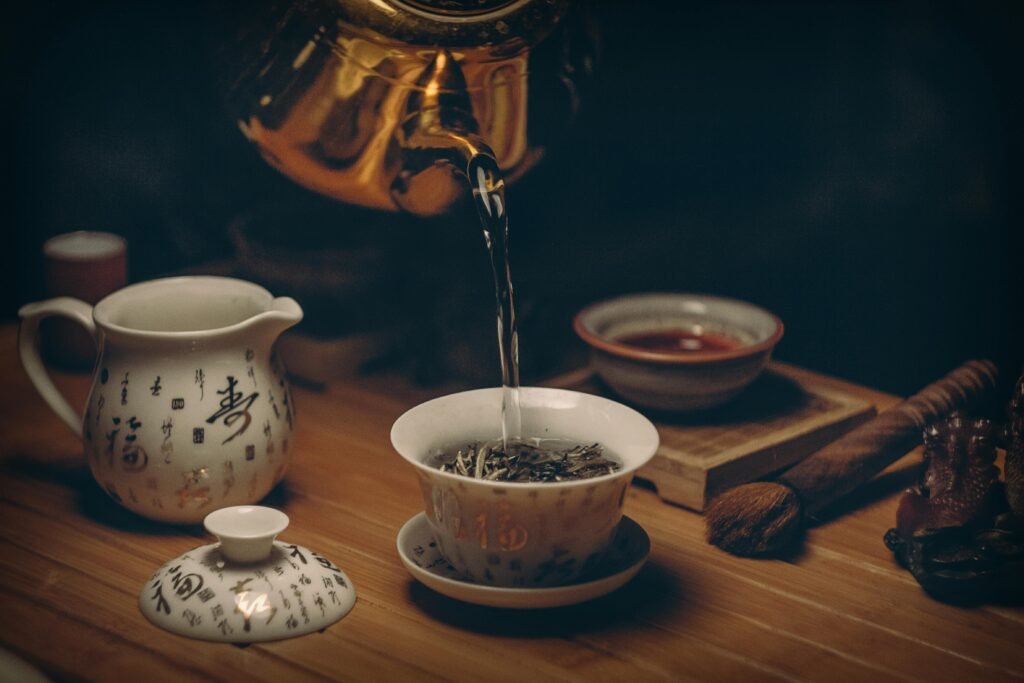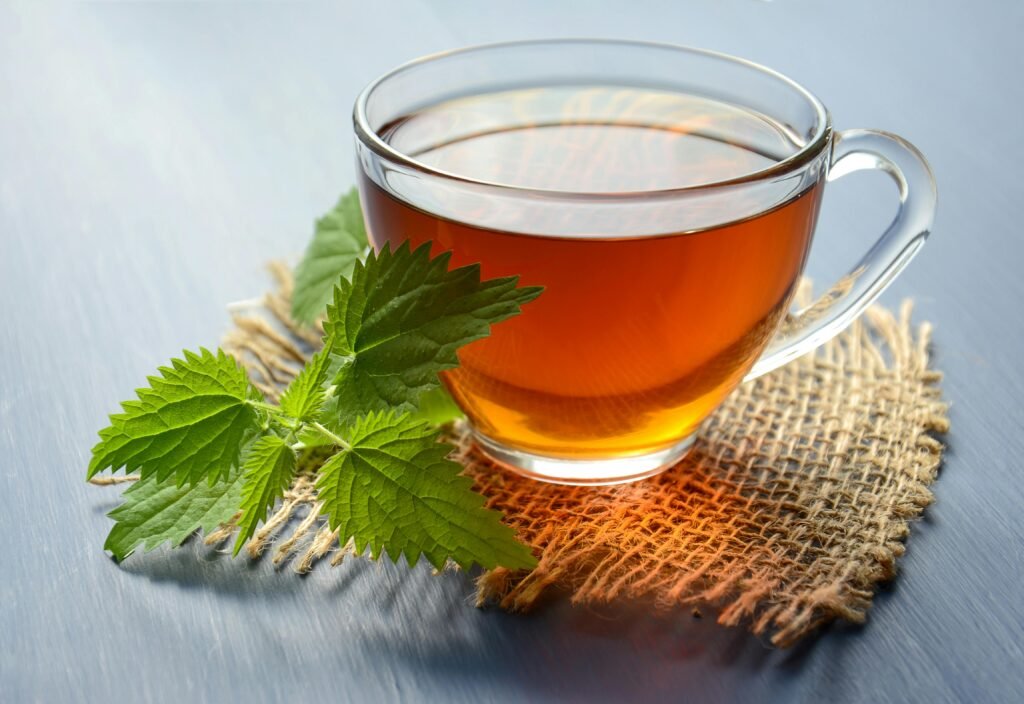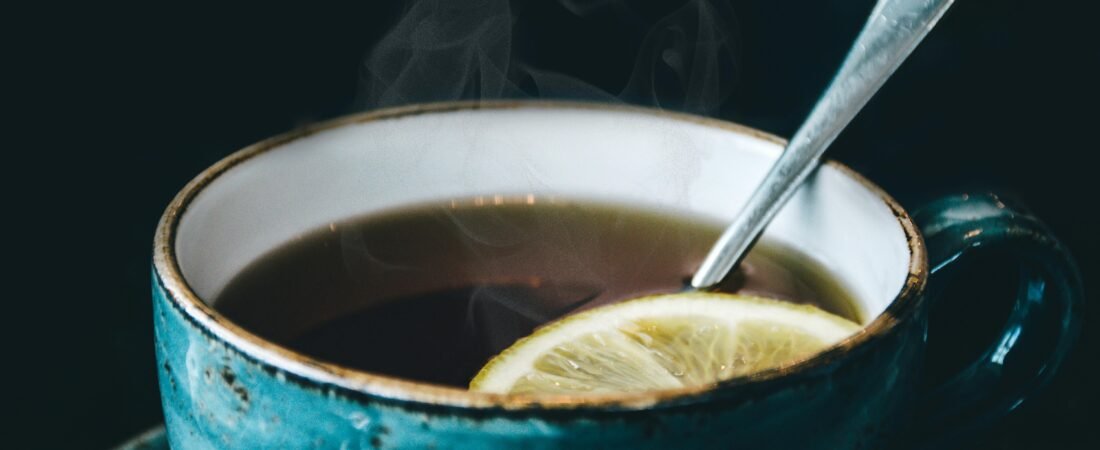The uncomfortable sensation is all too familiar for many: a feeling of fullness, tightness, and sometimes visible distension in the abdomen. Bloating, that unwelcome guest, can turn a perfectly good day sour, leaving you feeling heavy, sluggish, and simply not yourself. It’s a common complaint, often triggered by our diets, habits, or underlying digestive quirks. In the quest for relief, people often turn to natural remedies, and one beverage frequently rises to the top of the “healthy habits” list: green tea. Revered for centuries for its myriad health benefits, from boosting metabolism to providing antioxidants, green tea is a staple in many wellness routines. But when it comes to that puffy, uncomfortable feeling, can this popular brew genuinely help alleviate bloating?
This article delves into the potential effects of green tea on bloating, exploring the science (and the traditional wisdom) behind its possible benefits, examining what current understanding and evidence suggest, and offering practical insights for those seeking digestive comfort.

Understanding Bloating: More Than Just a Full Stomach
Before I explain how green tea may be helpful, it’s essential to understand what bloating is and why bloating happens. Bloating is usually considered a self-reported feeling of pressure or fullness in the stomach, which is or isn’t objectively accompanied by distension (apparent expansion of the belly). It is distinct from feeling stuffed after consuming an enormous meal.
The root causes of bloating are diverse and often interconnected. Common culprits include:
- Gas Production: This is perhaps the most frequent cause. Gas is a natural byproduct of digestion, particularly when gut bacteria ferment undigested carbohydrates in the large intestine. Certain foods (like beans, broccoli, onions, and sugary drinks) can produce more gas than others. Swallowing excess air (from eating too fast, chewing gum, or drinking through a straw) also contributes.
- Fluid Retention: Also known as edema, this occurs when the body holds onto excess water. Factors like high sodium intake, hormonal fluctuations (especially before menstruation), and certain medical conditions can lead to fluid retention, causing a puffy feeling throughout the body, including the abdomen.
- Digestive Issues: Conditions like Irritable Bowel Syndrome (IBS), celiac disease, inflammatory bowel disease (IBD), and even simple constipation can significantly contribute to bloating. Slowed transit time in the gut can lead to increased fermentation and gas buildup.
- Dietary Factors: Beyond high-FODMAP foods (fermentable carbohydrates that can cause gas in sensitive individuals), carbonated beverages, artificial sweeteners, and even the timing and size of meals can impact bloating.
- Hormonal Changes: Fluctuations in hormones, particularly estrogen and progesterone, can affect gut motility and lead to increased fluid retention, commonly causing bloating before or during a woman’s menstrual period.
- Stress: The gut and brain are intimately connected (the gut-brain axis). Stress and anxiety can alter gut motility, affect gut bacteria, and even increase sensitivity to gas, leading to bloating.
Understanding these various causes highlights that bloating isn’t a one-size-fits-all problem, which in turn suggests that no single remedy, including green tea, will be a universal cure. However, green tea possesses several properties that theoretically could address some of these contributing factors.
Potential Ways Green Tea Might Help with Bloating

Green tea is packed with bioactive compounds, most notably polyphenols (like catechins, especially epigallocatechin gallate or EGCG) and caffeine. These components are responsible for many of its purported health benefits, and they offer several potential mechanisms by which green tea might help ease bloating:
Diuretic Effects
Both green tea catechins and caffeine are mild diuretics. That is, both can cause the kidneys to let go of more water and sodium and thus produce more urine. In individuals whose bloating is partly due to excess water retention, such a diuretic action may lead to a decrease in total body fluid volume, which in turn may lead to alleviating the perception of fullness and tightness in the abdomen caused by fluid retention. While not a treatment for bloating caused by gas, fluid retention is an approach green tea might help directly.
Anti-inflammatory Properties
Green tea, particularly its abundant EGCG content, is a powerful antioxidant. These compounds help combat oxidative stress and reduce inflammation throughout the body, including the gut. Inflammation in the digestive tract can contribute to bloating by affecting gut motility, increasing sensitivity to gas, and potentially irritating the gut lining. By helping to calm inflammation, the antioxidants in green tea might soothe the digestive system, potentially reducing the discomfort and distension associated with an inflamed gut.
Aiding Digestion
While not a direct digestive enzyme supplement, some research suggests that the polyphenols in green tea may support healthy digestion. They might indirectly influence the production or activity of certain digestive enzymes, or improve gut motility, facilitating the breakdown of food and the passage of contents through the digestive tract. When food is digested more efficiently, there is less undigested material left for bacteria to ferment excessively in the large intestine, which can reduce the production of gas, a major cause of bloating.
Supporting Gut Health
The polyphenols in green tea act as prebiotics, meaning they can selectively nourish beneficial bacteria in the gut microbiome. A healthy, balanced gut microbiome is crucial for proper digestion, nutrient absorption, and even immune function. An imbalance (dysbiosis) can lead to increased production of gas, inflammation, and altered gut motility – all factors contributing to bloating. By promoting the growth of beneficial bacteria, green tea may help restore balance to the gut ecosystem, leading to more efficient fermentation and reduced gas formation.
Relaxation and Stress Reduction
Green tea contains L-theanine, an amino acid known for its calming and stress-reducing effects. As mentioned earlier, stress is closely linked to digestive issues, including bloating, often by altering gut motility and increasing gut sensitivity. By promoting relaxation and reducing anxiety, L-theanine in green tea might indirectly help alleviate stress-related bloating, allowing the digestive system to function more smoothly. This is a subtle but potentially significant benefit for those whose bloating is exacerbated by stress.
Stimulating GI Tract Movement
Caffeine is a known stimulant, not just for the brain but also for the digestive system. It can help stimulate contractions in the muscles of the gastrointestinal tract, promoting motility. For individuals experiencing bloating partly due to slow transit time or mild constipation, this gentle stimulation from the caffeine in green tea might help move gas and waste through the system more effectively, thereby reducing feelings of fullness and pressure.
These potential mechanisms suggest that green tea could play a supportive role in managing bloating, particularly when it’s related to mild fluid retention, gut inflammation, an imbalanced microbiome, stress, or sluggish digestion.
Scientific Evidence and Considerations

While the potential mechanisms sound promising, what does the science say specifically about green tea and bloating? Research directly investigating green tea as a treatment for bloating is somewhat limited. Much of the evidence supporting these potential benefits comes from studies on the individual components of green tea (like EGCG, caffeine, L-theanine) and their effects on broader areas like metabolism, inflammation, gut health, or fluid balance, rather than studies specifically targeting bloating symptoms.
Studies have demonstrated the antioxidant and anti-inflammatory effects of green tea compounds in various contexts. Research also supports the prebiotic-like activity of green tea polyphenols in promoting beneficial gut bacteria in in vitro (test tube) or animal studies, and some human trials. The diuretic effect of caffeine is well-established.
However, translating these general findings to a direct, proven anti-bloating effect in humans is complex. Bloating is often multifactorial, and its perception can be subjective. Clinical trials specifically using green tea interventions to measure changes in bloating severity, frequency, or abdominal distension in diverse populations are needed to draw firm conclusions.
It’s also important to note the limitations:
- More Human Studies Needed: While in vitro and animal studies provide insights, robust, large-scale human trials specifically on green tea’s impact on bloating are necessary.
- Specific Mechanisms: The exact biological pathways by which green tea influences gut function and reduces bloating symptoms require further, targeted investigation.
- Individual Variation: Responses to green tea vary significantly among individuals based on genetics, gut microbiome composition, overall diet, lifestyle, and the specific cause of their bloating.
Therefore, while the scientific rationale for green tea’s potential anti-bloating effects exists based on its properties, it’s not yet definitively proven through extensive clinical trials focused solely on bloating. It’s best viewed as a potential supportive beverage rather than a guaranteed medical treatment.
Who Might Benefit Most from Green Tea for Bloating?
- Individuals with Bloating Linked to Mild Fluid Retention:
- Green tea’s diuretic effects, primarily due to caffeine and catechins, can help the body excrete excess water.
- This is most relevant for bloating associated with mild water retention, such as:
- Pre-menstrual bloating.
- Bloating after consuming high-sodium foods.
- Those Experiencing Stress-Related Bloating:
- L-theanine, an amino acid in green tea, has calming properties that can influence the gut-brain axis.
- Reducing stress and anxiety may help soothe a sensitive digestive system and potentially decrease the perception of gas or bloating discomfort.
- People with Bloating Due to Sluggish Digestion or Mild Constipation:
- The mild stimulant effect of caffeine can potentially increase gut motility.
- This may help move gas and waste through the digestive tract more effectively.
- Note: This is typically for mild, temporary sluggishness, not severe or chronic constipation.
- Individuals Whose Bloating May Involve Gut Microbiome Imbalance:
- Polyphenols in green tea are suggested to have prebiotic-like activity.
- This means they might help support the growth of beneficial gut bacteria.
- A healthier bacterial balance could potentially lead to less excessive gas production in individuals prone to it.
- When Bloating is Multifactorial but Includes These Elements:
- Many people experience bloating from a combination of factors (e.g., stress plus mild fluid retention).
- Green tea’s various potential benefits could offer support across several contributing causes simultaneously.
- Important Considerations / Who May NOT Benefit as Much:
- Green tea is less likely to alleviate bloating caused by severe underlying medical conditions (like celiac disease, SIBO, or physical obstructions).
- Individuals sensitive to caffeine might find green tea increases anxiety or digestive upset, potentially worsening symptoms.
- The acidity of green tea could also be counterproductive for some people with sensitive stomachs.
When Green Tea Might Not Help (or Could Potentially Worsen Bloating)

It’s also crucial to acknowledge that for some individuals, green tea might not help with bloating and could potentially even exacerbate it.
- Caffeine Sensitivity: While caffeine can stimulate the gut, in some people, it can cause digestive upset, including increased gut motility that leads to discomfort, spasms, or even diarrhea, which can be accompanied by bloating. If you are sensitive to caffeine, green tea might not be a good choice.
- Drinking on an Empty Stomach: Green tea is acidic. Drinking it on an empty stomach can irritate the stomach lining in some individuals, potentially leading to heartburn, indigestion, and indirectly, bloating.
- Excessive Consumption: While moderate consumption is generally considered safe, drinking very large quantities of green tea could lead to excessive caffeine intake, causing the issues mentioned above. It could also potentially interfere with nutrient absorption if consumed with meals (though typically not a major concern in moderation).
- Not Addressing the Root Cause: If bloating is due to a significant underlying medical condition (like celiac disease, SIBO, or a bowel obstruction), green tea will not resolve the issue. Relying solely on green tea in such cases could delay proper diagnosis and treatment. If your bloating is persistent, severe, or accompanied by other symptoms like pain, weight loss, or changes in bowel habits, it is essential to consult a healthcare professional.
For these reasons, it’s important to listen to your body and observe how you react to green tea.
How to Incorporate Green Tea for Potential Bloating Relief (Practical Tips)

If you wish to explore green tea as a potential aid for bloating, here are some practical tips for incorporating it into your routine:
- Recommended Consumption: There’s no strict rule, but many studies suggesting health benefits involve consuming 1 to 3 cups of green tea per day. Start with one cup and see how you feel. Avoid excessive amounts.
- Timing: Consider drinking green tea between meals rather than immediately with them, especially if you’re concerned about potential interference with iron absorption (though this effect is generally minor with moderate intake). Drinking it when you feel slightly bloated might offer timely relief if it works for you. Avoid drinking it too close to bedtime due to the caffeine content.
- Brewing Suggestions: Use water that is hot but not boiling (around 175-185°F or 80-85°C). Boiling water can extract tannins, making the tea bitter. Steep for 2-3 minutes. Longer steeping times can increase bitterness and tannin levels, which might upset the stomach in some people.
- Choosing Quality: Opt for high-quality loose-leaf green tea when possible. This often means fresher leaves and better flavor. Organic options can reduce exposure to pesticides. Different types of green tea (Sencha, Matcha, Gyokuro, etc.) have slightly different flavor profiles and nutrient concentrations, but all contain beneficial compounds.
- Integrate into a Healthy Lifestyle: Green tea is not a standalone cure. Its potential benefits for bloating are best realized when integrated into an overall healthy lifestyle that includes a balanced diet (limiting known gas-producing foods if sensitive), adequate hydration (with plain water!), regular exercise, and stress management techniques.
Other Natural Remedies for Bloating
While green tea may be a helpful addition, several other natural approaches are often recommended for bloating relief:
- Peppermint Tea: Contains compounds that can relax the muscles of the digestive tract, helping trapped gas move along.
- Ginger: Known for its carminative properties, helping to expel gas and stimulate digestion. Can be consumed as tea or added to food.
- Fennel: Fennel seeds have been traditionally used to relieve gas and bloating. Chewing on a few seeds or drinking fennel tea might help.
- Staying Hydrated: Paradoxically, dehydration can sometimes lead to fluid retention as the body tries to hold onto water. Drinking enough plain water helps prevent constipation and supports healthy digestion.
- Dietary Changes: Identifying and reducing intake of trigger foods (like high-FODMAP foods, carbonated drinks, artificial sweeteners) is crucial. Increasing fiber gradually and ensuring balanced meals can also help.
- Exercise: Physical activity stimulates gut motility, which can help move gas and waste through the digestive system.
Conclusion
Does green tea help with bloating? Based on its composition, green tea holds promise as a potential supportive beverage for alleviating some causes of bloating. Its mild diuretic effects may help with fluid retention, while its anti-inflammatory, gut-health-supporting, digestion-aiding, and stress-reducing properties could contribute to a calmer, more efficient digestive system, potentially reducing gas and discomfort.
However, it’s essential to maintain a balanced perspective. While the theoretical benefits are compelling and supported by research on its individual components, robust clinical trials specifically proving green tea’s efficacy as a bloating treatment are still emerging. Individual responses vary greatly, and for some, green tea (particularly due to caffeine or acidity) might not be helpful or could even worsen symptoms.
Ultimately, green tea is not a guaranteed cure for bloating. Its effectiveness depends on the underlying cause of the bloating and the individual’s unique physiology. It is best viewed as one potential tool in a broader approach to digestive wellness. If you choose to incorporate green tea, do so mindfully, observe its effects on your body, and ensure it complements a healthy diet, adequate hydration, and regular physical activity.
Most importantly, if your bloating is persistent, severe, accompanied by pain, or associated with other concerning symptoms, it is crucial to consult a healthcare professional. They can help identify the root cause of your bloating and recommend the most appropriate course of action, ensuring you get the relief you need. Green tea can be a delightful and potentially helpful addition to your wellness routine, but it should not replace professional medical advice or treatment for chronic or severe digestive issues.

